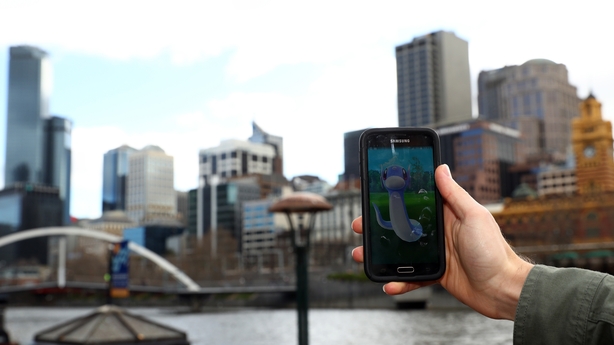Eager Japanese rushed to their phones today to start hunting as Pokemon GO, the hit Nintendo-backed smartphone game, finally launched in Japan, home of the colourful cartoon characters.
The game has been an unexpected, runaway success from Spain to Australia, doubling Nintendo's value since the game's launch in the US earlier this month.
Japan, however, had been made to wait, as Niantic, the developers behind the game, and Nintendo sought to ensure servers would withstand the game's popularity.
Finally, after days of rumours, it launched earlier today.
The augmented reality game has players out in their real life localities "capturing" monsters on their smartphones as they turn up even in ordinary offices and taxis.
In a video address to Japanese fans, Junichi Masuda, head of development at Game Freak and co-creator of the game, apologised for keeping players waiting so long.
"From today you can go out and find Pokemon to your heart's content," he said. "We hope the game enables users to see the world in a new, fulfilling way. Obey the rules and have fun."
The game was created by Nintendo, Niantic and Pokemon, part-owned by Nintendo. Both Nintendo and Pokemon have undisclosed stakes in Niantic.
The game has enthralled players and boosted investors' view of Nintendo's future, as they bet the group can cash in on a treasure chest of other lucrative cartoon characters, from Donkey Kong to Super Mario.
But the game has also prompted warnings, as players glued to their phones become prone to tripping over, crashing cars, getting mugged or wandering into dangerous places.

The Japanese government yesterday became the latest to issue a safety warning.
The country's National Centre for Incident Readiness and Strategy for Cybersecurity (NISC) told users of the mobile game not to use their real names and warned them about the risks of heat stroke in the muggy Japanese summer.
A number of other Asian nations still await the game, including China, the world's biggest smartphone and online gaming market.
Niantic CEO John Hanke has said it would be technically possible to launch there, but noted a host of complex rules and restrictions.

